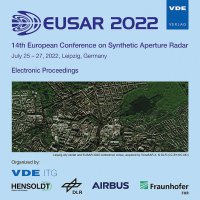A PolSAR Clustering Scheme Using the Model-free Scattering Power Components
Konferenz: EUSAR 2022 - 14th European Conference on Synthetic Aperture Radar
25.07.2022 - 27.07.2022 in Leipzig, Germany
Tagungsband: EUSAR 2022
Seiten: 6Sprache: EnglischTyp: PDF
Autoren:
Dey, Subhadip (Microwave Remote Sensing Lab, Indian Institute of Technology Bombay, India & Microwaves and Radar Institute, German Aerospace Center, Wessling, Germany)
Lopez-Martinez, Carlos (Signal Theory and Communications Department (TSC), Universitat Politécnica de Catalunya (UPC), Barcelona, Spain)
Bhattacharya, Avik (Microwave Remote Sensing Lab, Indian Institute of Technology Bombay, India)
Frery, Alejandro C. (School of Mathematics and Statistics, Victoria University of Wellington, New Zealand)
Inhalt:
Using full-polarimetric Synthetic Aperture Radar (SAR) data, the model-free four-component scattering power decomposition technique overcomes several limitations of other model-based target decomposition approaches. In particular, all the power components are roll-invariant, non-negative. Alongside this, an unsupervised clustering technique was proposed with 24 clusters. However, such a large number of clusters may not be necessary for classes with scanty pixels. Hence, this study modifies the existing clustering scheme for land cover characterization based on specific criteria on the number of pixels pertaining to some particular dominant mechanism. This modification adequately captures the clusters’ variations according to their physical and geometrical properties.


